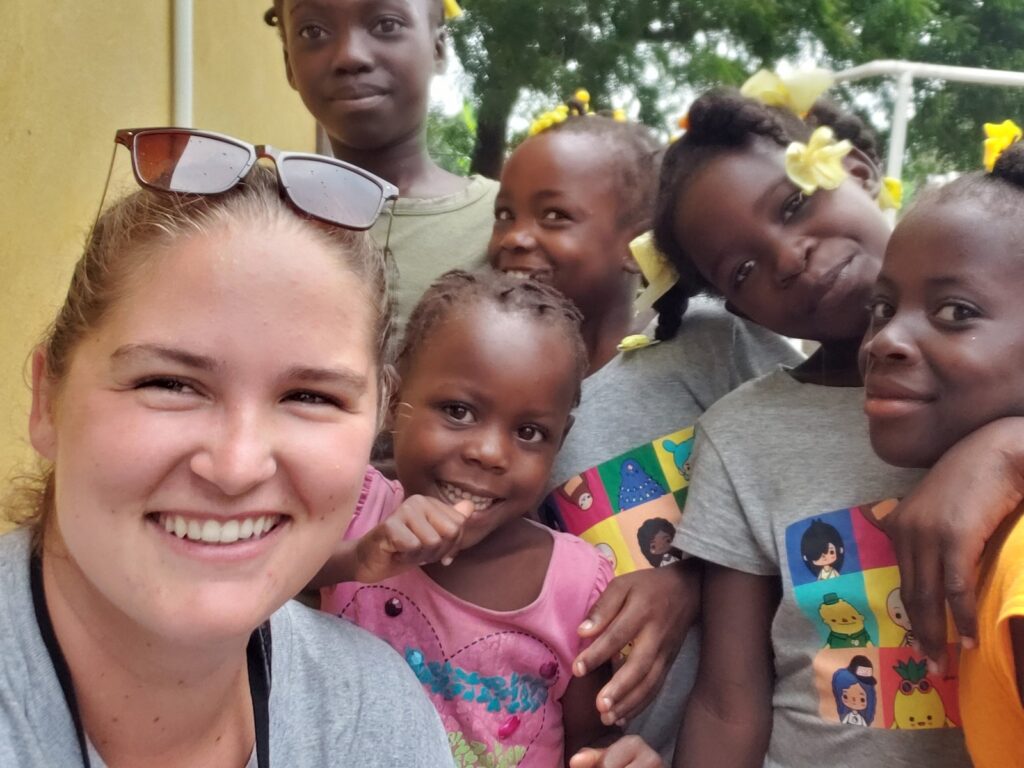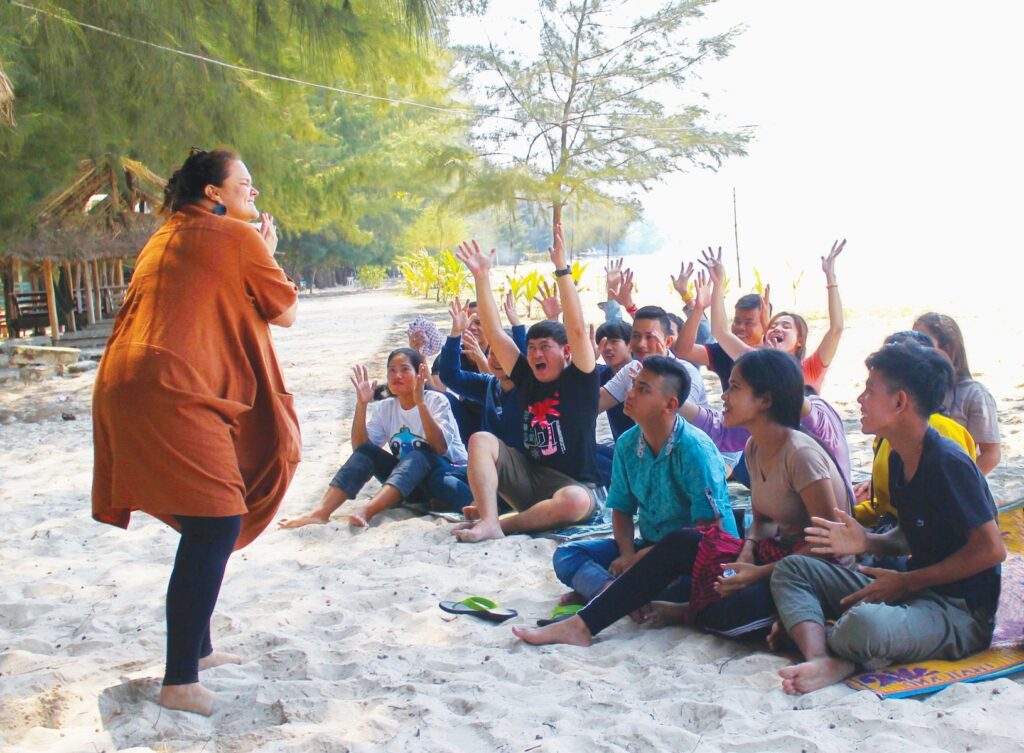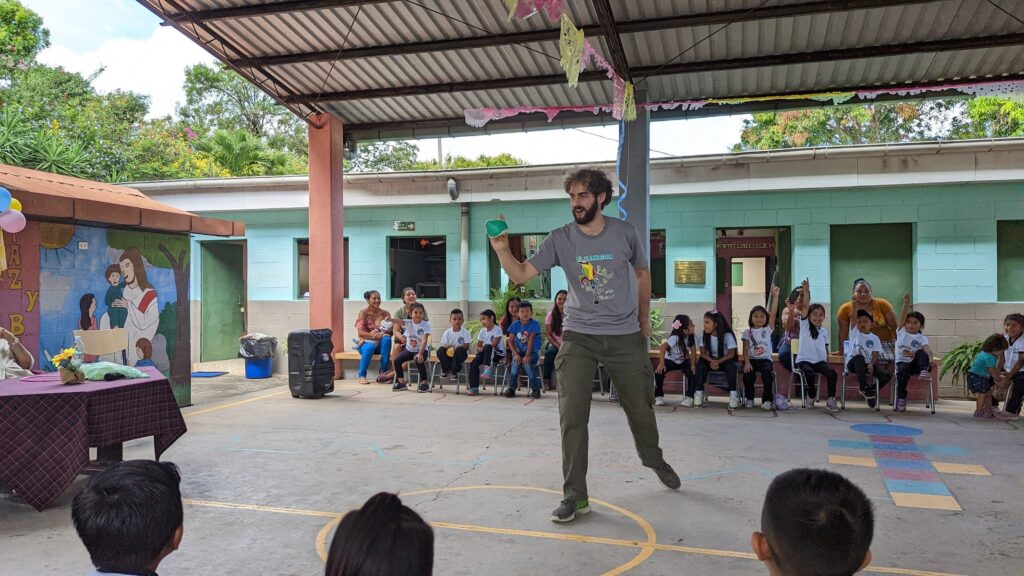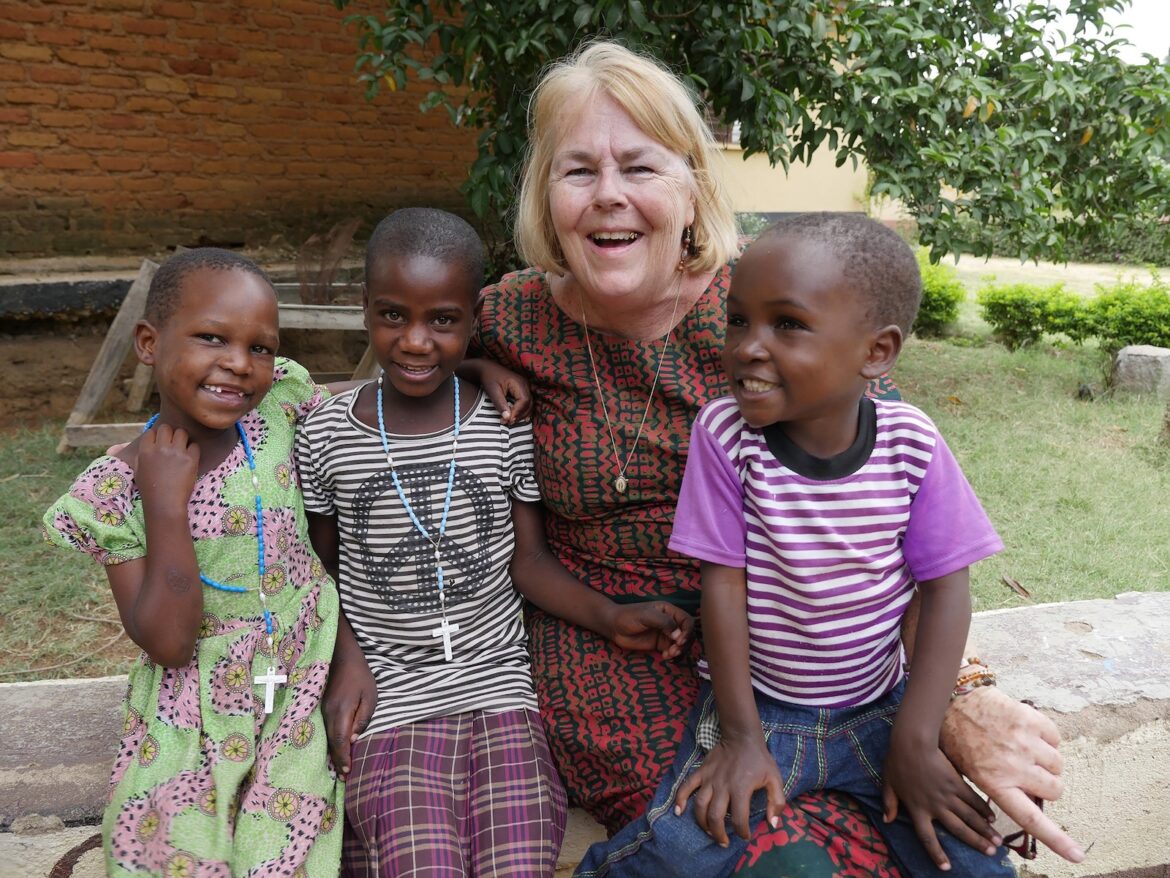(OSV News) — In an era of conflict and division, it’s an intriguing and empowering invitation: “Do a world of good for a world in need.”
It comes from the Maryknoll Lay Missioners — a Catholic mission-sending community that tirelessly spreads a message of nonviolence through “prevention, intervention, reconciliation, and the restoration of all creation.”
And after half a century of work around the globe — the community’s Aug. 14-17 anniversary celebration is taking place at Maryknoll’s headquarters in Ossining, New York — the missioners have a question: Won’t you join us?
“During our anniversary, we are obviously going to celebrate the past, and marvel at what God has helped us to accomplish — or maybe what we’ve helped God to implement,” shared Elvira Ramirez, executive director of the Maryknoll Lay Missioners.
Previously a Maryknoll sister for 11 years, Ramirez has helmed the missioners for the last two — and she realizes the label “missionary” can perhaps conjure up some outdated images.
“There is another way of inviting people to join us who might have a stereotype about what mission is — which is to say to them, ‘Well, it can look like this.'”
That “this” is reflected in the Maryknoll Lay Missioners’ statement of purpose — which declares they are “striving to create an inclusive and anti-racist world” and that they “live with those most excluded in society to transform unjust structures together.”
Maryknoll Lay Missioners serve in Africa, Asia and the Americas
Ramirez said it’s a set of goals with Gospel roots.
“How do we accept diversity in our human existence; how do we pay attention to the least among us — which are things Jesus was talking about over 2,000 years ago. But today we still need to do that,” she told OSV News.
“We do have a responsibility as a part of the church to continue to remind people of this call — it’s not just a moral imperative; it’s a way of life. We can still be witnesses to that,” added Ramirez, “and invite.”

Maryknoll Lay Missioners — there are currently more than 30 long-term missioners and missioner families in nine countries in Africa, Asia and the Americas — work on a standard 3-1/2-year contract once accepted. While a Catholic organization, missioners do include people of other faith traditions.
Ministries encompass education and leadership; health care and health promotion; faith formation and pastoral care; justice and peace; and sustainable development. All are informed by core values of simple living; community, joy, inclusion and humility.
And, of course, being a witness to faith.
“The whole Church is missionary”
“Evangelization is a word with which people sometimes associate different meanings,” Ramirez reflected. “But for Maryknoll Missioners, it’s become a word we would say is about accompaniment. It’s about mutual transformation. It’s about solidarity.”
“Being a missioner,” Ramirez added, “is about responding to the voices of the most vulnerable, and those who are left out in society. And so for us, evangelization has brought us to the realization that we’re not bringing God to these people — we ourselves are actually being transformed in this relationship.”
In the years following the Second Vatican Council (1962-65), Maryknoll took seriously the council’s teaching that “the whole Church is missionary, and the work of evangelization is a basic duty of the People of God.”
Events moved rapidly: In 1969, the Maryknoll Fathers and Brothers undertook studies to establish a lay missioner program; a year later, the Maryknoll Sisters voted to facilitate the presence of laypeople in mission; in 1972, the priests and brothers authorized an experimental program for lay missioners; and in 1974, a quartet of laypeople prepared for overseas mission at the Maryknoll Sisters’ Mission Institute. After signing formal agreements, they were sent to Hong Kong, Venezuela, and Peru.

The Maryknoll Lay Missioners were officially founded on June 1, 1975, as a collaborative effort of the Maryknoll Fathers and Brothers and Maryknoll Sisters. The first formal orientation program for lay missioners was soon held, and the inaugural lay mission family headed overseas. Restructured in 1994, they now operate as an independent organization.
“So much of the future depended on laity,” Jennifer Tomshack, communications manager for the Maryknoll Lay Missioners, told OSV News as she reflected on the post-Vatican II era. “And it was time to start cultivating that, and nurturing it, and bringing the laity into roles that in the past had been traditionally filled by priests and people in religious life.”
“Part of it was for the camaraderie of it, too,” she explained. “What we do with the Maryknoll Missioners is to come alongside people; we come alongside people to do the work. And for priests and religious to come alongside the laity is exactly the same thing.”
“Largest class in years” of Maryknoll Lay Missioners
Tomshack said the organization is encouraged by recent growth and interest.
“It’s shaping up to be our largest class in years, and we think this is a harbinger of more to come. Mission appears to be resonating with a lot of people right now,” she suggested, “and our work appears to be resonating.”
Historically, Maryknoll Lay Missioner membership has been limited to U.S. citizens or residents — but in 2025, three candidates from El Salvador successfully completed the admissions process, an occasion Tomshack characterizes as “the most exciting development that we’ve had in quite a long time.”
“The Salvadoran missioners already come from communities that have been marginalized,” she shared. “They chose to go because they saw the work of mission. They saw how it impacted their communities, and how it impacted them — and they wanted to then pay it forward, so they are going to work with other marginalized communities.”
“Just by nature of who they are,” Tomshack explained, “they are already in solidarity with the people they’re serving — and the people who they’re serving know that. And I think that creates a bond that speaks volumes about what it is we’re trying to do.”
Called to ministry
For U.S. missioners — including Joanne Blaney and Juan Gomez — the attraction can be from a chance encounter, or a yearning for something more.
“After many years as a teacher and as a school principal, I felt a call to be a missionary,” said Blaney, who is stationed in São Paulo, Brazil, and focuses her ministry on education and leadership training, as well as justice and peace.
“God works in very strange ways, as we know,” she laughed. “A teacher invited a Maryknoll priest to come and make a presentation on his work in the Philippines. I was really impressed by the presentation he gave about how he and the people there were trying to live out the Gospel. And at that moment, I felt like, ‘I want to do that, too. I feel like that’s the next part of my life.’ So I entered the Maryknoll Missioners in 1991.”
Blaney and her team train members of the community, church, judicial system and other groups in violence prevention, nonviolent communication and restorative justice practices.
“The first thing Jesus did was recognize that each person has dignity,” Blaney suggested. “And then he asked questions about their lives, and he listened. In the work that we do in restorative justice, a lot of it is asking questions that help people reflect upon their own lives.”
“If we can intervene in some way to stop the violence, we will try to do that,” added Blaney, “and bring a Gospel presence as well as reconciliation.”

Juan Gomez, who is area director for the Americas and serves in Bolivia, came to the missioners in 2014, after he felt something was missing.
“I migrated to the United States when I was 15 years old,” the native Colombian said. “I was really pursuing the American dream. I went to college for engineering, and got a good job. Then I was living the American dream.”
“But,” Gomez said, “it was not fulfilling for me, or satisfying — and that made me look for other paths. I went on a mission trip to the Dominican Republic, and that’s what changed my life; that trip — I decided to become a missioner.”
Gomez lives with his family in a rural Indigenous community called Tacopaya — in the steep, isolated Andes — where he teaches computer, auto mechanics and baking classes at a boarding school. He also coaches sports teams, leads a faith youth group, and mentors and accompanies his students.
“Becoming a missioner has enriched my life in so many aspects, and it has made me be a better person — and therefore, I am able to help marginalized communities to improve, and hopefully be stronger.”
And like other Maryknoll Lay Missioners, Gomez is learning from those he serves.
“There’s so much we need to learn from marginalized communities. There’s so many traditions they carry from thousands of years ago, which we should definitely learn from, and expand throughout the world,” he shared.
“It’s not only the work that we do as missioners in these communities, but also the bridge that we create back with our home country. There’s so much knowledge and so many ways of seeing life that enrich and improve our home communities, too,” Gomez emphasized. “So I think it’s very relevant — more than ever, possibly.”
Kimberley Heatherington writes for OSV News from Virginia.




